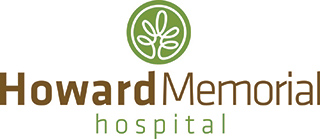Blog
Breast Cancer Awareness Month
October 7, 2022
There’s no better time to focus on breast health
The past two years have impacted everything, including preventative screenings like annual mammograms. Starting in 2020, fewer women kept up with important screenings, annual wellness visits and prevention seemed to take a back seat to the COVID-19 pandemic.
Breast Cancer Awareness Month 2022 serves as a perfect reminder to focus on breast health and get back to regular screenings. Maybe it's time to schedule a mammogram—if you haven't already. Or perhaps Breast Cancer Awareness Month is a great time to remind the women in your life about the seriousness of breast cancer awareness—and the importance of protecting themselves by scheduling the screenings they need.
The seriousness of breast cancer
Did you know:
- Breast cancer is the most common cancer worldwide—surpassing lung cancer for the first time in 2020—and the second leading cause in cancer death in American women.
- Every 2 minutes a woman in the United States is diagnosed with breast cancer
- 1 out of 8 women will be diagnosed with breast cancer in her lifetime.
- 3 out of 4 women diagnosed have no family history of the cancer.
- In 2022 alone, breast cancer is expected to take the lives of more than 43,000 women.
These statistics can be overwhelming and frightening, there is a great deal of good news as well. Early detection, where the cancer is still localized has a 99% five-year survival rate. This is why self-exams, mammography and overall awareness about protecting yourself can be lifesavers—literally and figuratively.
Ways to help protect your breast health
- Self-exams. Women, you are your first line of defense against breast cancer. Perform self-exams every month. According to a recent study, 40% of breast cancer cases were diagnosed after a women felt a lump during a self-exam.
- Clinical exams. Keep those annual primary care visits. Your provider is trained to recognize signs or abnormalities in the breasts, which is part of your yearly wellness visit.
- Mammograms. There is no substitute. If you are over age 40—or have a health history of breast cancer and your provider wants to start screenings early—schedule mammogram screenings every year. Do not skip them. While breast cancer may not be preventable, early detection can make it manageable.
- Healthy lifestyles. As with so many things that impact our health and well-being, healthy lifestyle choices are linked to lower the risk of some cancers—and other health conditions like diabetes, heart disease and osteoporosis. Staying physically active, achieving and maintaining a healthy weight, eating a healthy diet centered around fruits and vegetables and avoiding tobacco and alcohol may help reduce the likelihood of breast cancer.
Early detection is your best protection—the advantages of 3D mammography
Regular mammograms are your most important tool to detect breast cancer early—when it's easier to beat and treatments are less invasive. 3D mammography uses advanced technology to get clearer, more detailed images of the breasts—and detect smaller cancers sooner. The screening is also more comfortable for patients, provides higher quality, more thorough images of breasts of all densities and the results are more reliable—detecting cancers up to 65% faster than standard mammograms.
Advanced care is right here—3D imaging at Howard Memorial Hospital
At HMH, access state-of-the-art 3D imaging where it's close and convenient. The Hologic Selenia Dimensions 3D Mammography System takes multiple digital images of the breast from various angles so they can be viewed individually as slices. These exceptionally detailed images help providers detect cancer at its earliest stages.
3D mammography provides clear, precise tissue images and patient benefits including:
- Proven to detect up to 65% more invasive cancers compared to 2D alone
- Proven to reduce callbacks by 40% compared to 2D alone
- FDA approved as superior for women with dense breasts compared to 2D alone
Life—and mammograms—begin at 40
The American Cancer Society recommends women start annual mammogram screenings at age 40—or earlier for those with a family history of the disease. After age 55, women may screen every two years or continue getting mammograms annually. Talk to your provider about what is the best course of action for you to protect yourself from breast cancer at every age.
Ask your primary care provider to schedule your screening
If you're due for a mammogram, talk to your primary care provider about scheduling this important screening. Early detection is your best protection against breast cancer—and while it may not be on anyone's list of favorite things to do, the process really is quite simple—and our compassionate, experienced team is here for you, every step of the way. Even better, mammograms usually only take about 20 minutes—so it's over before it begins—and it's a minimal time investment to protect something as valuable as your health—and maybe even your life. https://www.howardmemorial.com/our-services/primary-care
